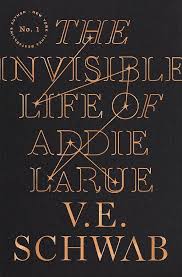Chapter I
byChapter I begins on a rainy July 29, 1914, in the small, somber village of Villon-sur-Sarthe, where Addie Larue finds herself reflecting on the immense passage of time. Two hundred years have gone by since she made the fateful deal that would shape her existence forever. As she walks through the village, the changes are undeniable; fewer familiar sights greet her, though landmarks like the old church and the graveyard remain largely unchanged, untouched by time’s relentless march. Seeking shelter from the downpour, she takes refuge at the church’s entrance before venturing into the graveyard. There, she pays a quiet visit to her parents’ graves, placing wild roses in their memory, a small act of connection to the past and her dear friend Estele, who had once been her closest companion.
The weight of the years presses on her as she moves through the graveyard, but a shock soon halts her steps—what was once a strong, symbolically important tree beside Estele’s grave has been destroyed. The tree had long stood as a memorial, a connection between her present and the memory of Estele, but now it’s gone. Overcome by a deep sense of loss, Addie is forced to confront the inescapable truth: no matter how deeply she holds onto memories, time erodes all things, and the permanence she yearns for is just an illusion. The sight of the ruined tree amplifies the futility of her eternal struggle against time and change, and as if summoned by her sorrow, Luc—the mysterious figure behind her dark deal—appears. His presence, both familiar and unsettling, offers a strange form of comfort, his dark influence marking the continuation of their entangled relationship. With him standing by her side, the reality of their pact is underscored once more.
In a stark contrast to the quietude of Villon-sur-Sarthe, Paris represents a world that has evolved, expanded, and thrived in ways that Addie cannot relate to. Here, amidst the bustling city, Addie and Luc share a moment of rare connection over a glass of wine. Their conversation turns introspective, as Luc acknowledges the loneliness that ties them both together, and Addie recognizes the quiet, unnoticed presence he has always maintained in her life. As they reflect on the complexity of their bond, Luc presents her with a wooden ring, a symbol of her deal with him—something she had believed lost to time. The ring, a product of her creation, carries with it layers of meaning and significance, showing that her actions and creations, even in the face of time’s passage, have more permanence than she ever realized. This moment reshapes Addie’s understanding of her own existence, challenging her belief in the transience of life and loss. Through Luc’s gesture, she begins to question the value of what she has created and how it ties into the eternal struggle she faces between permanence and the fleeting nature of human experience. The ring, a small yet powerful symbol, draws attention to the paradox at the heart of her existence—caught between the weight of immortality and the ephemeral beauty of her fleeting memories.
Addie’s emotional journey in this chapter highlights the contrast between her past and present, illustrating the difficulty of living with the consequences of a deal that continues to shape her existence. The loss of the tree beside Estele’s grave, along with Luc’s reappearance, forces her to confront the deeper truths about time, memory, and the personal connections that shape her life. It also underscores the emotional complexity of her relationship with Luc, a figure who, despite being tied to her greatest loss, also offers moments of strange companionship. Through her reflection on these events, the chapter paints a poignant picture of Addie’s struggle with the passage of time, loss, and the heavy, unyielding presence of her pact, which defines the nature of her existence.


